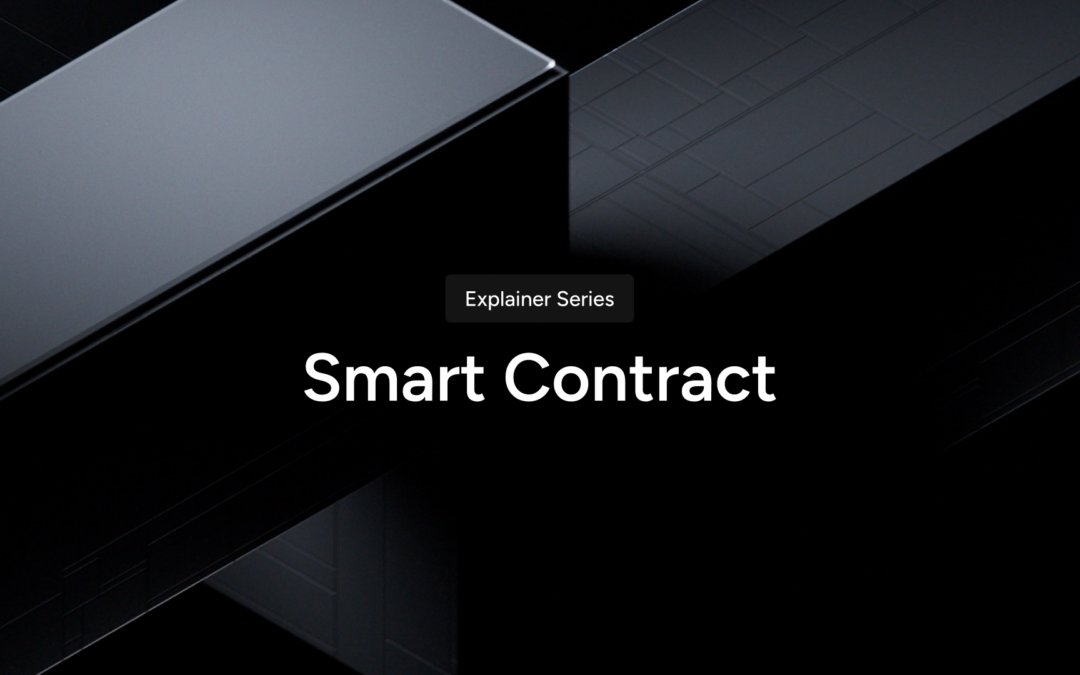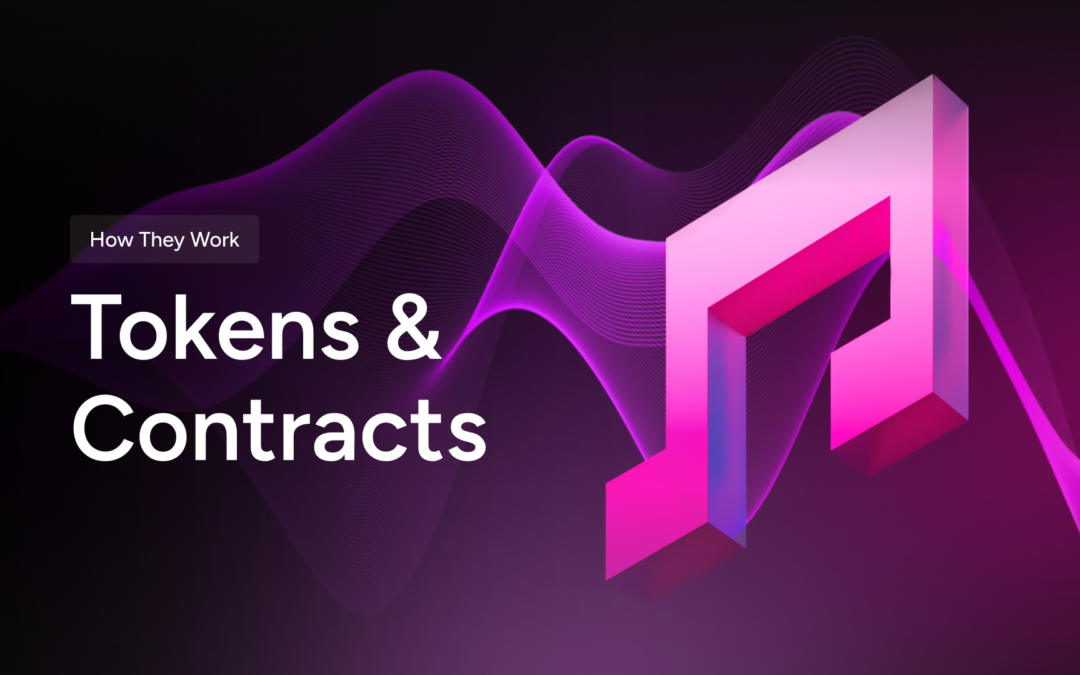
Smart Contracts: Digital Agreements of the Future (The Future is Now)
What are Smart Contracts?
What if agreements could execute themselves automatically when certain conditions are met, without the need for intermediaries or manual processing?
It’s actually possible. This is the essence of smart contracts. A smart contract is a self-executing contract with the terms of the agreement directly written into code. These contracts run on blockchain networks, ensuring transparency, security and automation.
How Do Smart Contracts Work?
To understand smart contracts, let’s break down their functionality step-by-step. Then we’ll explore some different kinds of smart contract examples within the GalaChain ecosystem.
- Code as Contract: The terms of a smart contract are written in code. This code defines the rules and penalties of the agreement, just like a traditional contract, but in a digital form that can be executed automatically.
- Blockchain Execution: Smart contracts are deployed on a blockchain, a decentralized and immutable ledger. This ensures that once a smart contract is created, it cannot be altered.
- Automatic Execution: When predefined conditions are met, the smart contract executes itself. For example, if a smart contract is set to release payment once a product is delivered, it will automatically transfer funds when delivery is confirmed.
- Transparency and Trust: All transactions and contract terms are visible on the blockchain, providing transparency. Since the contract executes automatically, there’s no need for trust between parties; the code enforces the agreement.
Smart Contracts at Work within Gala
In the Gala Games ecosystem, smart contracts are at the heart of various gameplay mechanics and economic structures. Here are some examples:
- Collect & Exchange NFTs: Smart contracts govern the ownership and trading of NFTs, ensuring that players can securely own, sell, and trade unique in-game assets. This includes items, characters and land within the game world. These contracts handle the transfer of ownership, enforce scarcity and ensure authenticity.
- Rewards Mechanics: Gala Games use smart contracts to implement their unique reward economies, automating the distribution of rewards to players based on their in-game activities and achievements. Rewards can include $GALA and other tokens as specified in the game’s litepaper.
- Node Governance: Gala Founder’s Nodes perfectly demonstrate one of the most important aspects of smart contracts: Community governance. Every Founder’s Node receives a single vote for its operator in every issue presented to the Founder’s Node ecosystem for governance.
The Gala Music platform leverages smart contracts to revolutionize the music industry, including examples like:
- Reward Distribution: Smart contracts automate the daily distribution of $MUSIC to artists, producers, collectors and listeners based on the economic details outlined in the Gala Music Whitepaper.
- NFT Music Ownership: Musicians can mint their tracks as NFTs, which are governed by smart contracts. These limited quantities and uniquely identified NFTs can be sold or traded, allowing artists to monetize their work directly and securely.
- Fan Engagement: Smart contracts can be used to create exclusive content or experiences for fans. For example, fans who lock their $MUSIC to support an artist directly can unlock levels of benefits like early sale access and special discounts, all governed by smart contracts.
In the Gala Film ecosystem, smart contracts facilitate new ways of financing, distributing, and engaging with film content:
- Decentralized Funding: The future of Gala Film will show filmmakers how through the use of smart contracts they can receive support for their film projects, such as funding and resources. We call this the “Pitches” program – It will be implemented following the $FILM token official launch.
- Content Distribution: Smart contracts can manage the distribution of video content, ensuring that Gala Film content is served by a truly decentralized network powered by Theater Nodes and their operators.
- Interactive Viewer Experience: Smart contracts make it possible to create interactive and immersive viewer experiences such as unlockable content. For example, viewers can collect shards from Mystery Boxes to complete Expansions, opening new exclusive content.
Why are Smart Contracts Important?
Smart contracts are a revolutionary innovation with several key benefits:
Automation
By automating the execution of contracts, smart contracts reduce the need for intermediaries, such as lawyers or brokers, speeding up processes and reducing costs.
Security
Smart contracts use blockchain technology, which is highly secure. The decentralized nature of blockchain makes it difficult for hackers to alter or tamper with the contract.
Transparency
All terms and transactions of a smart contract are recorded on the blockchain, providing complete transparency. This helps in building trust between parties.
Accuracy
Since smart contracts are written in code, they are executed with precision and accuracy, eliminating human errors that can occur in traditional contracts.
Efficiency
Smart contracts streamline processes by eliminating the need for manual intervention, reducing administrative overhead and speeding up transaction times.
Real-World Applications of Smart Contracts
Financial Services
Smart contracts are transforming the financial sector by enabling decentralized finance (DeFi) platforms. These platforms offer services like lending, borrowing, and trading without traditional intermediaries.
Supply Chain Management
In supply chain management, smart contracts can automate the tracking of goods, ensuring transparency and reducing fraud. For example, a smart contract can release payment once a shipment is verified and delivered.
Real Estate
Smart contracts can automate real estate transactions, from listing to final sale. This reduces paperwork and speeds up the process, ensuring that all terms are met before transferring ownership.
Insurance
Insurance companies can use smart contracts to automate claims processing. When a claim meets the predefined conditions, the smart contract can automatically release payment to the policyholder.
Gaming and Entertainment
Platforms like Gala Games use smart contracts to manage in-game assets and transactions. $GALA, the native token of the GalaChain ecosystem, facilitates these transactions, ensuring security and transparency in the gaming world.
The Future of Smart Contracts
As smart contract technology continues to evolve, we can expect to see even broader applications and advancements. Here are a few trends to watch:
Interoperability
Future developments will focus on enabling smart contracts to operate across different blockchain networks, enhancing their functionality and reach.
Legal Integration
Smart contracts could be integrated into traditional legal frameworks, providing a hybrid model that combines the benefits of automation with the assurance of legal oversight.
Scalability
Efforts are underway to improve the scalability of blockchain networks, allowing them to handle a larger volume of smart contracts without compromising speed or security.
AI and Smart Contracts
Integrating artificial intelligence with smart contracts could enhance their ability to manage complex agreements and adapt to changing conditions in real time.
Conclusion
Smart contracts are a groundbreaking innovation that is transforming the way we execute agreements. By leveraging blockchain technology, they offer a secure, transparent, and efficient method for automating transactions and enforcing agreements. As we move further into the era of Web3, smart contracts will play a crucial role in creating a more decentralized, transparent, and automated world.
Stay tuned for more blogs in our explainer series, where we’ll dive deeper into the fascinating world of Web3 and its key concepts!


